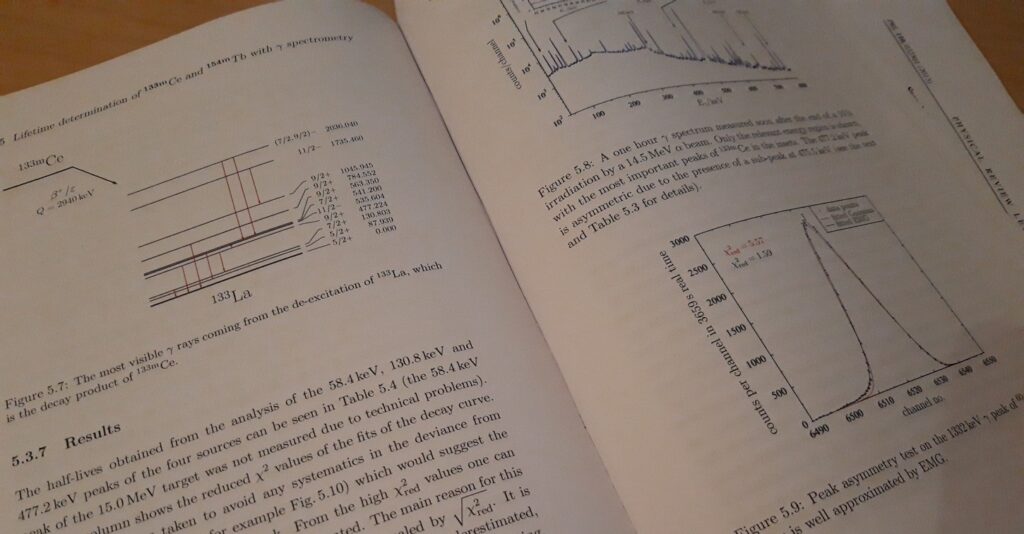Obsessed with Planning: Why Agile Hurts
Executive summary: Agile hurts just like physics: They both need you to value reality more than your own plans, preferences and self-image of cleverness.

An Ode to Planning
Oh, how much I love planning! It feels like nothing else! Starting with a blank sheet of paper and a bold challenge, not knowing where my thoughts and discoveries will lead me! Finding the essential elements, the connections between them, the variables, constraints and opportunities: Like magic, the structure of a brilliant solution emerges! Once done, looking at all the great intellectual work, the effort of hours, weeks and months: It gives the unmistakable feeling of achievement and the tingling sense of the power of the creator.
The Prose of Reality
I’m a physicist by training. I don’t know which one is true: Studying science makes you respect reality, or if you respect reality you end up studying science. Regardless, science teaches you a lot. Most importantly: No matter how brilliant your theory is, how much you believe in it, how detailed you’ve worked it out, how many hours you’ve put into it, how young and dynamic or old and wise you are — the final say is not yours. It’s Nature’s. And she mightily doesn’t give a sh*t about you and your opinion.
The Planner’s problem is this: You’re trying to tackle a complex problem in a complex world, by letting your limited intellectual capacity work on a constrained understanding of the problem. Your plan will never be a solution to the problem, but to the mental construct of the problem you’ve managed to build so far.
In science, if you have an idea, it has to go through trials by fire. The theory shall be able to clearly forecast the results of experiments past and yet to be performed [1], or the theory is proven wrong and has to be either modified or thrown away. It’s hard to face the fact that all your work and self-esteem can suddenly collapse under the weight of the facts, but as a scientist you grow used to this, and even learn to separate your self-esteem from the actual results, and link it to the way you get to the results, i.e. the scientific method. We have a word for the one who has theories only, but no interest in testing them: “Quack”. And quacks quickly find themselves out of the circles of science.
Why your engineers develop their skills way faster than you
Ever tried the job of an engineer? Engineers solve problems day by day. They demand their problems to be well defined, which makes it very apparent if they have already solved a problem or still need to work on it. So how engineers work? They examine the problem at hand, come up with a solution, implement it, and thoroughly test it. If it works, problem solved, if not, they repeat the cycle. This way they are able to learn extremely fast, because they get almost immediate feedback on what they have done and if it was the right thing to do or not [2].
Be like a scientist. Be like an engineer
Before you next time withdraw into your cave to spend some months or years planning an organizational change, a project, or any big undertaking, face the truth: Your brain is playing tricks on you. You enjoy planning because you feel the almighty power of the creator, and you’re not so keen on starting executing your plan because your mind wants to protect you from reality’s ego-shattering slaps in the face. Thanks to the effects of cognitive dissonance, the longer you plan, the stronger these effects become.
If you ever want to become an agile leader, you absolutely have to change this behavior. This is where Agile hurts the most.
Liberate your mind from its chains: Think about all the scientists, all the engineers. They’re facing the same psychological pain, yet if they want to perform, they have to leave these earthly feelings behind. The clearer you define your problems and the more often you expose your solution ideas to the test of reality, the more you will realize that being wrong and discovering it early is not at all that bad. Eventually, you’ll grow a thick skin against fear of failure. This will help you to solve complex problems one step at a time, and it will boost your capacity to learn. And these two are the keys to creating successful projects, successful organizations and a successful managerial career in a complex world.
Remarks
- This is known as Popper’s criterion of falsifiability
- The learning by experiencing cycle of empiricism is known as the PDCA (Plan-Do-Check-Act), Deming- or Shewhart-cycle. In the context of organizational learning I prefer to refer to it as the PDLA cycle (Plan-Do-Learn-Adapt)



No Comments